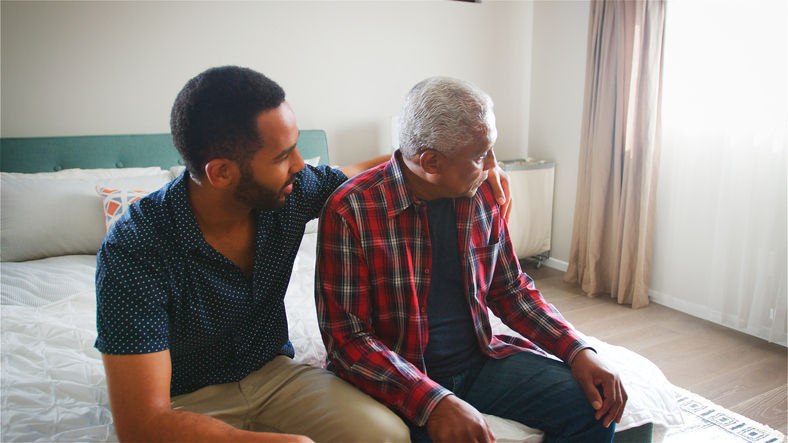Downsizing Tips from an Elder Care Coordinator
- Elder Care Law Blogger
- Aug 2, 2023
- 3 min read

For many people, the estate planning process raises questions about their possessions, and those discussions often start people thinking about downsizing to a smaller home. If you’re interested in this process, how should you go about it? We posed this question to Debra King, one of the elder care coordinators at Takacs McGinnis Elder Care Law. Debra has helped hundreds of clients and their family caregivers navigate the downsizing process.
Get Clear about Your Preferences
Debra says that the first step is to give thought to what you want to happen to your things. “Think through while you still can,” she said. “What can stay? What can go? Who should get what? When you’re clear about what you have and what it means to you, everything is easier.”
Be Realistic
According to Debra, many older adults don’t fully appreciate just how many possessions they have. “When you have a huge house that you’ve lived in for decades, you’ve inevitably accumulated a lot of stuff,” she said. “If you’re planning to move to a smaller home, you won’t be able to take everything. Many people are surprised by the reality that they need to get rid of so much.”
Document Your Wishes
If you want certain people to inherit specific items when you’re gone, documenting your wishes is vital. “When the attorneys at the firm are helping clients with their estate plans, or when someone prepares a Will, we always advise them to create a written memorandum that spells out who gets what,” Debra said. “That memorandum then becomes a part of the person’s Will.”
Talk to Your Family about Your Downsizing Plans
This important step is often overlooked. Many people resist talking about anything related to death or incapacity and, as a result, many older adults never tell their families about their preferences for their personal property. “Assuming your kids are going to do the right thing isn’t good enough,” advised Debra. “You have to help them understand what can go and what can stay, and it’s best if you do that when you’re still healthy.”
Start Gifting
Many seniors are collectors, and these collections can pose a challenge during the downsizing process. Gifting those items to family members is one option. “My grandmother had hundreds of beautiful China cups and saucers,” Debra said. “One year for Christmas, every daughter, granddaughter, and great-granddaughter got a cup and saucer from grandma. She was able to downsize her collection, and all the ladies in the family got a lovely heirloom.”
Prepare for Stress
Debra admits that downsizing can be a stressful process. “Making decisions about which cherished possessions stay and which ones go can be difficult,” she said. “If you want to gift an items to someone and they turn down your offer, that rejection can cause difficult feelings. Finding the right place for those special heirlooms can cause emotions that people aren't prepared for.”
Look for Collectors
If you have specialty items that family members don’t want, consider finding like-minded people who might be interested in buying or taking these items. “For example, in Nashville, we have many people who collect studio equipment, guitars, musical instruments, sheet music, albums, and cassettes,” Debra explained. “These people are often willing to buy or take items.” Debra admits that it can take time to find these collectors, so it’s important to start the process early.
Arrange for Help
If you’re willing to spend some money, working with professionals who specialize in assisting older adults with the downsizing process can make everything easier. These people help seniors declutter, organize, value, and determine where each item will end up. “Working with a professional increases the odds that the job will get done with minimum drama,” Debra said. “This can give you the peace of mind that comes from knowing that your family won’t be burdened with this task after you’re gone.”







Embark on Melon Playground, a physics-based sandbox game where you experiment with destruction! Let your imagination run wild and destroy everything!
downsizing is never easy especially when memories are attached to every corner of a home these tips offer clarity and compassion just like how mapquest directions help simplify complicated routes a little planning goes a long way in making the transition smoother and more meaningful
UU88 là một nhà cái trực tuyến uy tín, mang đến cho người chơi trải nghiệm cá cược hấp dẫn và an toàn. Nền tảng của UU88 được bảo mật cao, cung cấp đa dạng các dịch vụ từ cá cược thể thao, sòng bài trực tuyến đến nhiều trò chơi điện tử hấp dẫn. https://uu-88.net/
Great article. Thank you so much for telling me what you know! It's great to see that some people still work hard to keep their websites up to date. I'm sure I'll be back soon. When you have some free time, play redactle and start a new trip!
Simply take a job for cash if you Bitlife can't find it, and keep checking every year until you do.